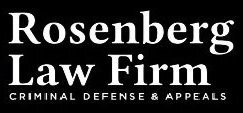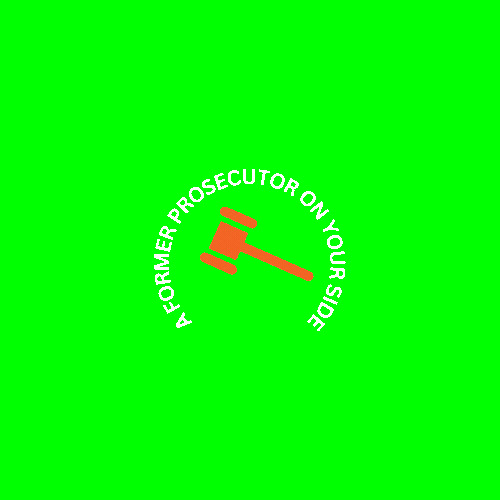Best ADR Mediation & Arbitration Lawyers in Brooklyn
Share your needs with us, get contacted by law firms.
Free. Takes 2 min.
List of the best lawyers in Brooklyn, United States
About ADR Mediation & Arbitration Law in Brooklyn, United States
Alternative dispute resolution - ADR - covers processes that resolve disputes outside of full court trials. The most common forms are mediation and arbitration. Mediation is a facilitated negotiation led by a neutral mediator; it is normally nonbinding unless the parties reach a settlement and sign an agreement. Arbitration is a private adjudication in which an arbitrator or a panel issues a decision that is typically binding and enforceable in court.
In Brooklyn - which is part of Kings County and the New York State court system - ADR is widely used for commercial disputes, landlord-tenant cases, family matters, employment issues, construction claims, and more. ADR may be court-annexed through local court programs or administered by private organizations such as major arbitration providers. New York State law and federal law both affect ADR practice, and local court rules and programs in Brooklyn shape how mediation and arbitration operate in practice.
Why You May Need a Lawyer
People choose a lawyer in ADR situations for multiple reasons:
- Drafting or reviewing ADR clauses: A lawyer can draft clear arbitration or mediation clauses for contracts and identify ambiguous language that could cause problems later.
- Deciding whether to invoke ADR or go to court: Lawyers can assess whether arbitration or mediation is appropriate based on the dispute, likely remedies, costs, and legal issues.
- Representation in mediation: An advocate helps present legal arguments, negotiate strategically, and evaluate settlement offers. Lawyers can prepare settlement documents that protect your rights.
- Representation in arbitration: Arbitration follows rules that differ from court procedure. Lawyers prepare briefs, select and challenge arbitrators, manage document exchange, examine witnesses, and make legal arguments.
- Enforcing or vacating awards: If an arbitrator issues an award you disagree with, a lawyer can file a petition to vacate or a petition to confirm an award under New York law and federal law, and can advise on appeal options where available.
- Managing complex procedures: When disputes involve multiple parties, cross-border issues, specialized evidentiary rules, or confidentiality concerns, legal counsel helps navigate procedural complexity.
Local Laws Overview
Key legal aspects affecting ADR in Brooklyn include:
- State and federal law: New York law governs many arbitration procedures and enforcement steps. The New York Civil Practice Law and Rules contains provisions governing arbitration awards and court review. The Federal Arbitration Act can apply if the dispute involves interstate commerce and can preempt state law in some situations.
- Enforceability of arbitration agreements: Courts generally enforce written arbitration agreements. A properly drafted clause can compel arbitration and limit court access, subject to statutory exceptions and public-policy limits.
- Court-annexed programs: Kings County Supreme Court and NYC Civil Court systems may offer mediation and other ADR programs. Participation can be voluntary or mandatory depending on the case type and local rules.
- Confidentiality: Mediation communications are commonly treated as confidential under local rules and provider policies. Arbitration hearings are private, but the degree of confidentiality depends on the arbitration agreement and the forum rules.
- Limited judicial review: Courts give significant deference to arbitrators. Grounds for vacating an arbitration award are narrow - for example corruption, evident partiality, serious procedural misconduct, or acting beyond the arbitrator's powers. Courts will usually confirm awards unless a narrow legal basis exists to refuse confirmation.
- Procedural variation by forum: Rules vary by provider - for example, American Arbitration Association, JAMS, or ad hoc arbitrations each have different procedural rules for discovery, evidentiary hearings, and arbitrator selection. Local court programs will have their own rules and timelines.
Frequently Asked Questions
What is the difference between mediation and arbitration?
Mediation is a facilitated negotiation where a neutral helps the parties try to reach a voluntary settlement. Mediation is usually nonbinding unless the parties reach and sign an agreement. Arbitration is more like a private trial where an arbitrator decides the dispute and issues an award that is normally binding and enforceable in court.
Are arbitration awards enforceable in Brooklyn courts?
Yes. Arbitration awards are generally enforceable through a court petition to confirm the award. New York courts will confirm awards unless there is a narrow statutory or public-policy reason to vacate or modify them.
Can I bring a lawyer to mediation?
Yes. Parties commonly have lawyers in mediation. Lawyers help prepare the case, advise on settlement strategy, and draft or review any settlement agreement. In some court-annexed or small-claims programs, parties may represent themselves if they prefer, but legal advice is often helpful.
Will a court force me to arbitrate if there is an arbitration clause?
If there is a valid and enforceable arbitration clause, courts will generally compel arbitration and stay court proceedings. Courts examine whether the clause is enforceable, whether it covers the dispute at issue, and whether any statutory exceptions apply.
How private are mediation and arbitration?
Mediation is usually confidential under the rules of the mediator or court program; communications made in mediation are typically protected from disclosure. Arbitration hearings are private, but the level of confidentiality depends on the arbitration agreement and the rules of the administering provider. If confidentiality is important, include clear terms in the ADR agreement and raise the issue with your lawyer.
How much does arbitration or mediation cost?
Costs vary widely. Mediation is often less expensive than arbitration because it usually resolves faster and involves fewer formal procedures. Arbitration costs include arbitrator fees, administrative fees for the provider, lawyer fees, and potential hearing costs. Provider fee schedules and arbitrator hourly rates can significantly affect total cost. Ask potential neutrals and providers for fee estimates in advance.
Can arbitration decisions be appealed?
Appeals from arbitration awards are very limited. Courts defer to arbitrators and will not rehear the merits in most cases. You can seek vacatur or modification of an award on narrow statutory grounds such as corruption, evident partiality, arbitrator misconduct, or exceeding powers. Some arbitration agreements permit judicial review or appellate arbitration panels, but those options must be agreed to in advance.
How do I pick an arbitrator or mediator?
Selection can be based on the neutral's subject-matter expertise, experience, reputation, and procedural style. Common sources for lists of neutrals include established providers, bar association rosters, and court panels. Discuss the neutral's background, approach to document exchange and hearings, and availability. Lawyers can assist with vetting and negotiating selection procedures.
Are there disputes that cannot be arbitrated?
Certain statutory claims or public-rights issues may be limited in arbitrability, depending on law. Consumer protection, employment, and certain statutory causes of action may have special rules or statutory protections. Courts also consider whether a party was forced to agree to arbitration under unconscionable or unfair circumstances. Consult a lawyer to determine arbitrability in your specific case.
What should I bring to my first ADR consultation with a lawyer?
Bring the contract or agreement that contains any ADR clause, a summary of the dispute and key facts, correspondence and documents supporting your position, a list of potential witnesses, and an idea of your objectives - for example monetary recovery, injunctive relief, or settling to preserve relationships. Also bring any deadlines or court filings and a list of questions about costs, timing, and strategy.
Additional Resources
Below are organizations and resources that can help you find information or neutrals in Brooklyn:
- New York State Unified Court System - court-annexed ADR programs and information on mediation and arbitration procedures.
- Kings County Supreme Court and Brooklyn Civil Court ADR programs - local court resources for mediation and settlement options.
- American Arbitration Association - major provider of arbitration and mediation services.
- JAMS - private provider offering mediation and arbitration with experienced neutrals.
- Brooklyn Bar Association - local bar for lawyer referrals and ADR resources.
- New York City Bar Association - ADR committees and guidance for selecting neutrals.
- New York State Dispute Resolution Association - professional association for mediators and arbitrators.
- Local law libraries and legal aid clinics - for low-cost or free information and self-help resources related to ADR and court procedures.
Next Steps
If you need legal assistance with mediation or arbitration in Brooklyn, consider the following steps:
- Review your contract for any ADR clause and note deadlines or procedural requirements.
- Gather the core documents and create a concise chronology of events to present to a lawyer.
- Consult an attorney experienced in ADR - ask about their experience with arbitration and mediation, past outcomes, fee structure, and approach to negotiation.
- Consider whether a private forum or court-annexed program is better for your case and request cost estimates and timelines from potential neutrals or providers.
- Prepare for mediation with clear objectives and bottom-line settlement parameters. For arbitration, work with counsel to prepare written submissions, witness lists, and evidentiary strategy.
- If you cannot afford private counsel, explore court ADR programs, legal aid, and bar association referral services for lower-cost options.
Taking these steps will help you choose the right process, find appropriate legal help, and present your case effectively in Brooklyn ADR proceedings.
Lawzana helps you find the best lawyers and law firms in Brooklyn through a curated and pre-screened list of qualified legal professionals. Our platform offers rankings and detailed profiles of attorneys and law firms, allowing you to compare based on practice areas, including ADR Mediation & Arbitration , experience, and client feedback.
Each profile includes a description of the firm's areas of practice, client reviews, team members and partners, year of establishment, spoken languages, office locations, contact information, social media presence, and any published articles or resources. Most firms on our platform speak English and are experienced in both local and international legal matters.
Get a quote from top-rated law firms in Brooklyn, United States — quickly, securely, and without unnecessary hassle.
Disclaimer:
The information provided on this page is for general informational purposes only and does not constitute legal advice. While we strive to ensure the accuracy and relevance of the content, legal information may change over time, and interpretations of the law can vary. You should always consult with a qualified legal professional for advice specific to your situation.
We disclaim all liability for actions taken or not taken based on the content of this page. If you believe any information is incorrect or outdated, please contact us, and we will review and update it where appropriate.









